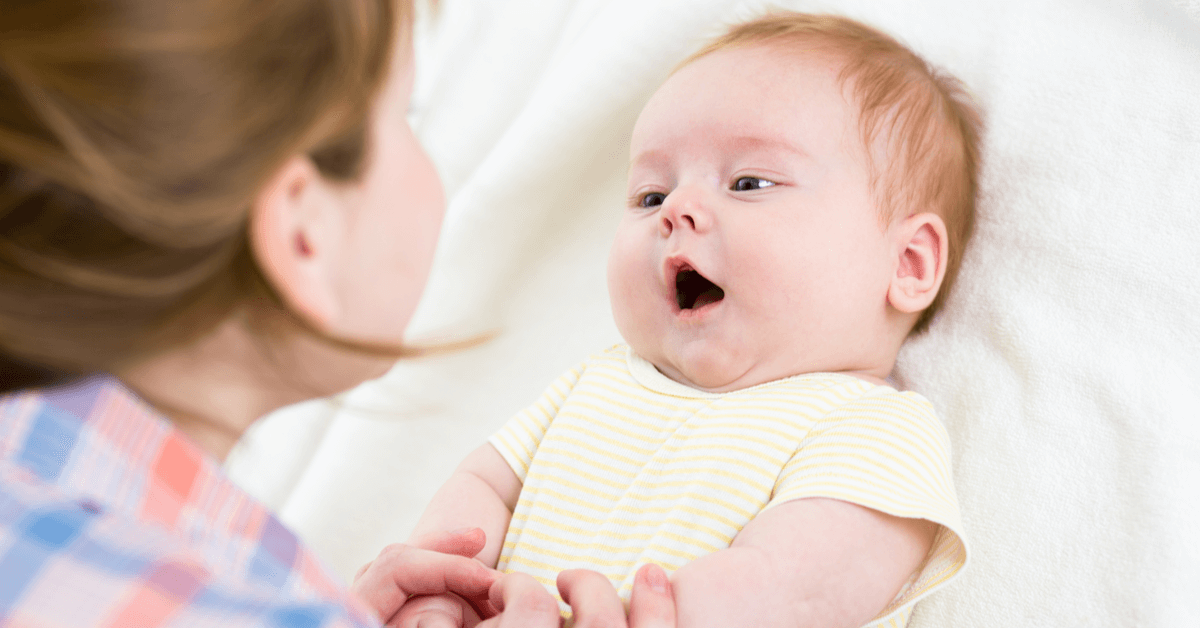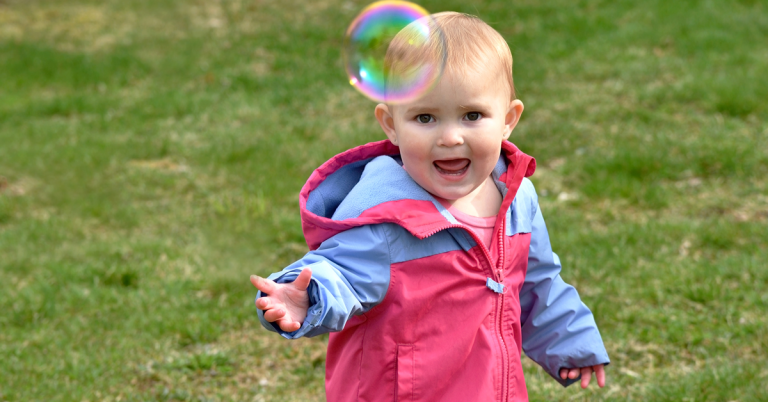Your baby is starting to communicate with you even when you are in your womb. While talking and listening to music, your baby becomes aware of these and begins to share with you. Researchers indicate that the earlier you start speaking and listening activities, the stronger the bond between you and your baby.
It’s Never Too Early
Even if your child cannot speak, he tries to communicate with you from birth. His first attempts to communicate are trying to make eye contact with you, following your gaze, making meaningless sounds, and smiling.
To respond to your baby’s attempts, try to look into his eyes from 20-25 centimetres away because this distance is the best distance that babies can focus to see. Caress your baby with gentle touches, smile often, sing and chat with him. These are all the best ways to communicate with babies.
Talk to your baby. Watch his reactions and wait for his answers. Knowing her reactions will help you communicate with your baby that you want to establish later. Try to understand your baby’s body language. Your baby may be trying to tell you something every time he shakes his hands and arms.
Follow your baby’s movements. Give him your full attention and try to hear even the slightest sound he makes, taking care to understand the answers he gives you down to the tiniest point. With these behaviours, you teach your baby communication skills and teach him how to understand and interpret the world he lives in. After your baby has finished feeding, you can try to contact him because the post-feeding period is one of the ideal moments when your baby can feel comfortable and ready. But don’t worry about it, because many moms and dads can find perfect moments for communication too instinctively!
Always remember that crying is very important for your baby’s language development. Before your baby starts talking, he can only convey his needs to others by crying. Therefore, responding to him quickly will help your baby trust and bond with you when your baby is crying.
Early Listening and Speaking
Many years ago, it was thought that babies could not hear and see well enough. However, we know today that the earlier you start speaking and listening activities, the stronger the bond between you and your baby.
Listening to your baby plays a crucial role in your growing relationship with your baby. What you see as just crying in the first days may mean “I’m hungry” or “I’m lonely and need your attention” in the future. If you listen to your baby well and understand what he means, you will lay the foundations of a good relationship with him.
Play Tips for Your Baby’s Communication Development
- Use loving words when talking to your baby. Be mindful of your tone of voice. Never use a harsh tone, even when talking about positive things. Speak slowly and look at your baby’s face while talking. Try not to keep things around that will distract your baby.
- Pay attention to communicating with your baby by raising and lowering your voice and making different sounds when talking to him. Most of the time, this type of speech that people automatically make when talking to a baby makes it much easier to catch the attention and attention of babies.
- Try to describe what you are doing at that moment in your speeches. For example, “I am changing your diaper right now” or “I am trying to prepare a meal for dinner.”
- You can also talk about what your baby is doing in your talk. Like “I see you waving your arms and legs right now (while your baby is shaking their arms and legs)” or “now I see you want to say something to me (while your baby is making noises).”
- After your baby is a little older, you can talk to him about anything. For example, “today, the weather is beautiful, the sun is shining in the sky” or “you have a full stomach, now it is my turn to eat, I have to fill my stomach.”
- Name the objects. Begin naming things, especially when your baby starts to grow and point to particular objects. Like “This is your teddy month, you want your teddy bear”… By the end of the first year, your baby will begin to understand many of the things you say to him and will be able to follow some short commands. For example, “wave” or give me the glass.”
- Do not belittle your baby’s speech attempts and never mock him, but encourage him to speak.
- Read picture books with your baby. Reading a book is one of the invaluable activities you can do with your baby. Because during this activity, your baby increases vocabulary improves language and listening skills.
- Have fun together with your baby. At 8-12 months, babies murmur frequently and utter simple words such as “ma-ma”, “da-da”, or “dad”. Speak to your baby when you talk to him, and praise him abundantly when he achieves any success with language development – even if your baby doesn’t understand the words you use.
Keep in Mind
- It’s never too early to get in touch with your baby.
- You should follow your baby’s body language and wait for his answers.
- The role of crying is significant in your baby’s communication development.
- Talk to your baby about anything as growing.
Would you like to share your experiences and questions as a comment?
Have a nice and healthy day!







